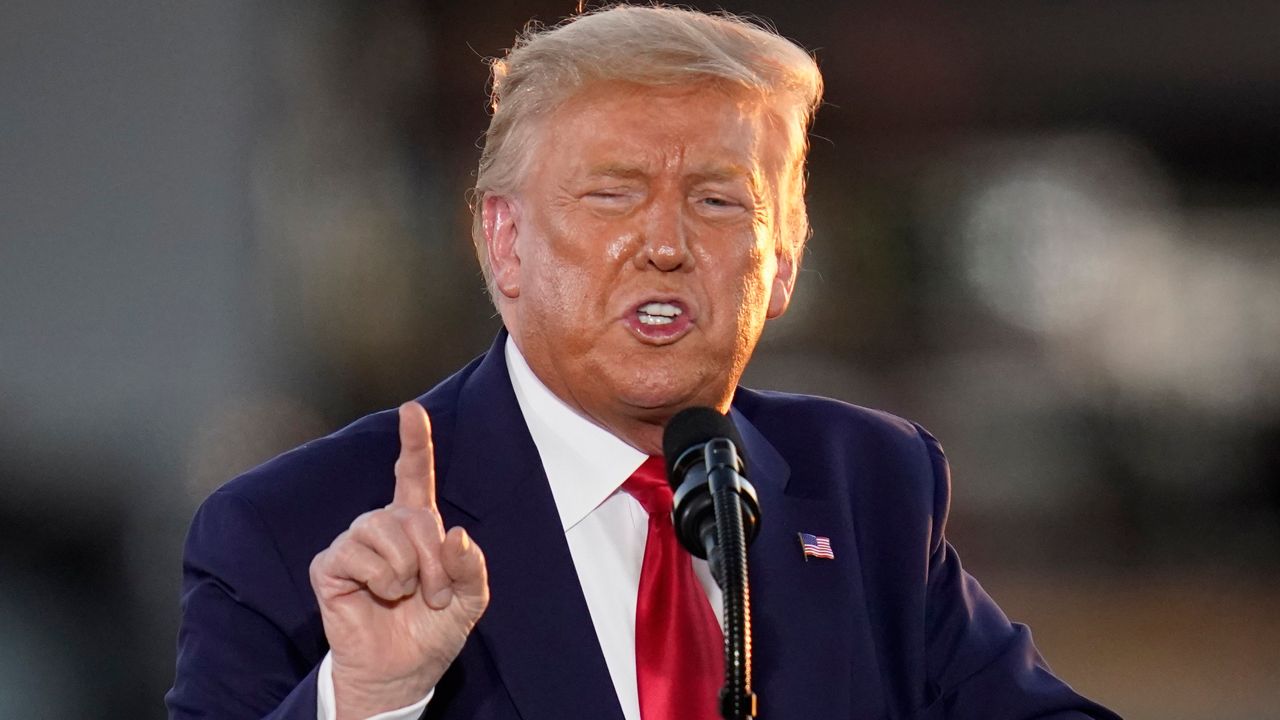WASHINGTON, D.C. — President Donald Trump again took aim at the pharmaceutical industry Sunday by signing an executive order that aims to lower drug prices.
Under the “Most Favored Nation” order, the government’s Medicare program would pay drugmakers the lowest price paid by any country in the Organization for Economic Cooperation and Development with a gross domestic product comparable to the United States.
The secretary of health and human services would first test how the approach would work for both drugs administered in a doctor’s office (through Medicare Part B) and those sold at pharmacies (through Medicare Part D) “where insufficient competition exists” and seniors pay more than OECD-member countries.
"Just signed a new Executive Order to LOWER DRUG PRICES!” Trump tweeted Sunday. “My Most Favored Nation order will ensure that our Country gets the same low price Big Pharma gives to other countries. "The days of global freeriding at America's expense are over ... and prices are coming down FAST! Also just ended all rebates to middlemen, further reducing prices."
Trump also signed four executive orders in July targeting drug prices but held off on implementing them until after meeting with pharmaceutical executives to present their ideas for how to make medicines more affordable. That meeting, however, never happened.
Sunday’s executive order replaces the July orders.
“It is unacceptable that Americans pay more for the exact same drugs, often made in the exact same places,” the order reads. “Other countries’ governments regulate drug prices by negotiating with drug manufacturers to secure bargain prices, leaving Americans to make up the difference — effectively subsidizing innovation and lower-cost drugs for the rest of the world.”
Stephen Ubl, president and CEO of Pharmaceutical Research and Manufacturers of America, quickly attacked the executive order as "an irresponsible and unworkable policy that will give foreign governments a say in how America provides access to treatments and cures for seniors and people struggling with devastating diseases.”
“What’s worse is that they are now expanding the policy to include medicines in both Medicare Part B and Part D, an overreach that further threatens America’s innovation leadership and puts access to medicines for tens of millions of seniors at risk,” Ubl said in a statement. “Rather than emulating countries that allow politicians to arbitrarily decide what medicines are worth and what diseases are worth investing in, we should use existing trade enforcement tools to prevent them from freeloading off American innovation.”
Trump’s order could take months, if not longer, to implement and is likely to be challenged in court.
In December, the Democratic-led House passed legislation also aimed at driving down drug prices using an international index, but Trump threatened to veto it because it “would likely undermine access to lifesaving medicines,” risked violating the U.S. Constitution, and reduced “the incentive to bring innovative therapeutics to market,” the White House said at the time.



